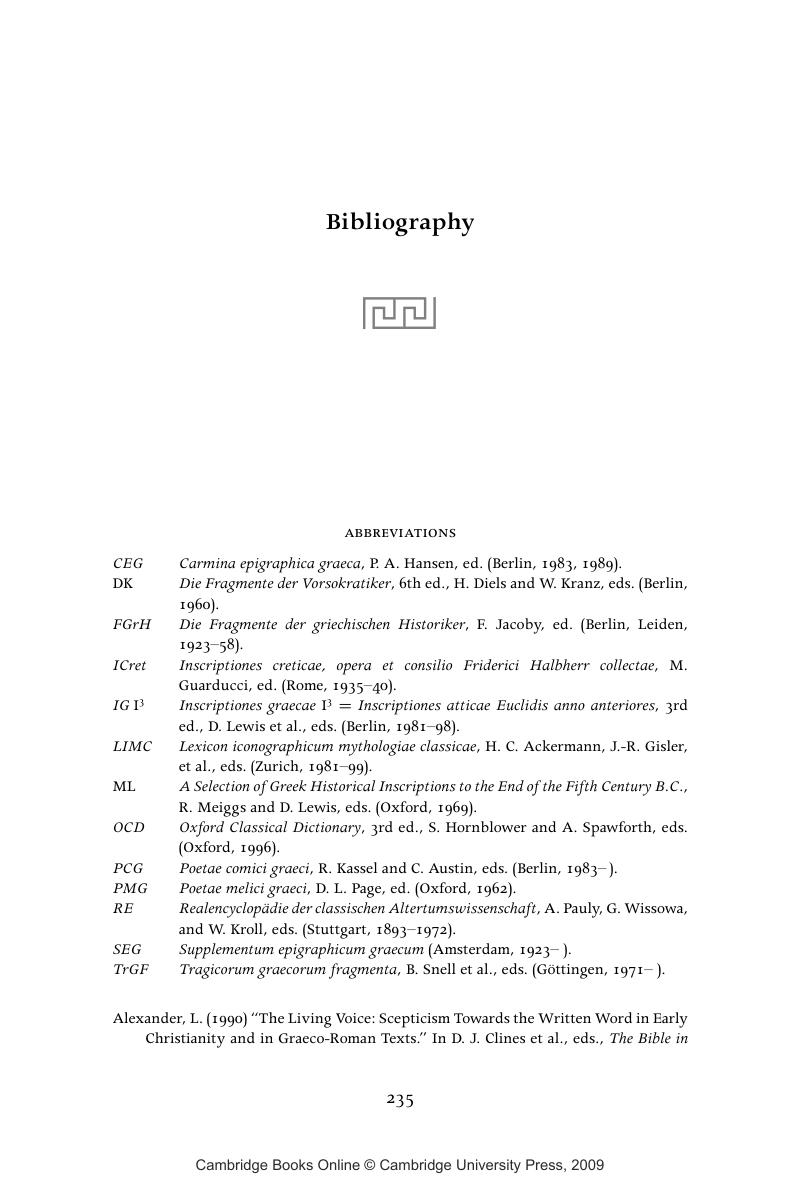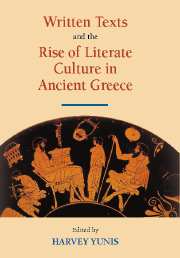Book contents
- Frontmatter
- Contents
- Preface
- Contributors
- Introduction: Why Written Texts?
- 1 From Letters to Literature: Reading the “Song Culture” of Classical Greece
- 2 Writing Religion: Inscribed Texts, Ritual Authority, and the Religious Discourse of the Polis
- 3 Letters of the Law: Written Texts in Archaic Greek Law
- 4 Writing, Law, and Legal Practice in the Athenian Courts
- 5 Literacy and the Charlatan in Ancient Greek Medicine
- 6 Literacy in Greek and Chinese Science: Some Comparative Issues
- 7 Writing Philosophy: Prose and Poetry from Thales to Plato
- 8 Prose Performance Texts: Epideixis and Written Publication in the Late Fifth and Early Fourth Centuries
- 9 Writing for Reading: Thucydides, Plato, and the Emergence of the Critical Reader
- 10 Reflecting on Writing and Culture: Theocritus and the Style of Cultural Change
- Bibliography
- Index
- References
Bibliography
Published online by Cambridge University Press: 30 July 2009
- Frontmatter
- Contents
- Preface
- Contributors
- Introduction: Why Written Texts?
- 1 From Letters to Literature: Reading the “Song Culture” of Classical Greece
- 2 Writing Religion: Inscribed Texts, Ritual Authority, and the Religious Discourse of the Polis
- 3 Letters of the Law: Written Texts in Archaic Greek Law
- 4 Writing, Law, and Legal Practice in the Athenian Courts
- 5 Literacy and the Charlatan in Ancient Greek Medicine
- 6 Literacy in Greek and Chinese Science: Some Comparative Issues
- 7 Writing Philosophy: Prose and Poetry from Thales to Plato
- 8 Prose Performance Texts: Epideixis and Written Publication in the Late Fifth and Early Fourth Centuries
- 9 Writing for Reading: Thucydides, Plato, and the Emergence of the Critical Reader
- 10 Reflecting on Writing and Culture: Theocritus and the Style of Cultural Change
- Bibliography
- Index
- References
Summary

- Type
- Chapter
- Information
- Written Texts and the Rise of Literate Culture in Ancient Greece , pp. 235 - 254Publisher: Cambridge University PressPrint publication year: 2003



